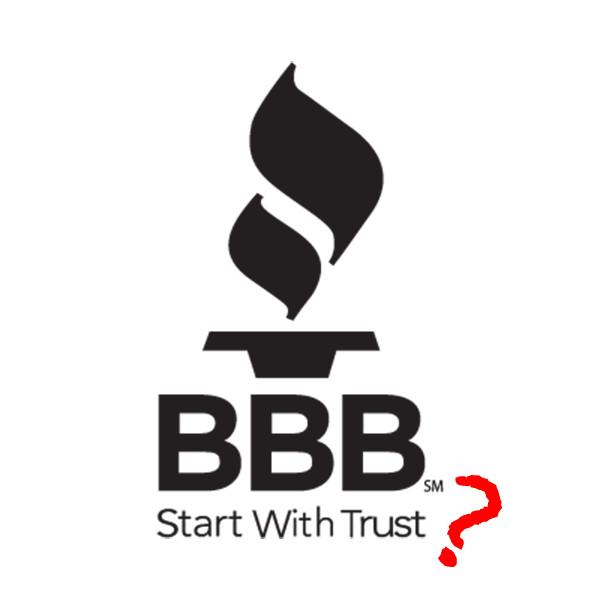The BBB is Lying to You... Sometimes

Is the Better Business Bureau (BBB) a Reliable Source? Understanding the Conflict of Interest in Business Ratings
About This Article
The Better Business Bureau (BBB) is widely used to assess business reliability, but concerns about its rating system’s integrity have raised questions about potential conflicts of interest. Since businesses can pay for accreditation, some argue this creates a “pay-to-play” system. At the same time, the BBB collaborates with law enforcement to track scams and protect consumers. This article explores both sides to help consumers make informed decisions.
BBB Accreditation and Potential Conflicts of Interest
BBB accreditation is a voluntary program where businesses pay annual fees to become accredited. Accreditation is meant to indicate that a business follows the BBB’s Standards for Trust, which emphasize ethical practices, transparency, and responsiveness to customer complaints. However, this financial relationship has led to concerns that businesses can “buy” better ratings.
Investigations have shown instances where companies received improved ratings soon after paying accreditation fees, despite having a history of complaints or legal issues. A 2010 ABC News report found that some businesses were given A+ ratings immediately after paying the membership fee, even if they had unresolved complaints or poor reputations.
Source: https://abcnews.go.com/Blotter/business-bureau-best-ratings-money-buy/story?id=12123843
Similarly, a 2015 CNN Money investigation highlighted cases where businesses with serious regulatory actions against them maintained high BBB ratings, raising concerns about the objectivity of the scoring system.
Source: https://money.cnn.com/2015/09/30/news/better-business-bureau-investigation
The BBB insists that accreditation does not guarantee a higher rating and that its scores are based on a range of factors, including complaint history and business responsiveness. However, the perception of bias remains, leading some consumers and businesses to question its impartiality.
For an overview of the BBB’s history and controversies, see its Wikipedia entry:
Source: https://en.wikipedia.org/wiki/Better_Business_Bureau
BBB’s Role in Consumer Protection and Scam Prevention
Despite concerns about its rating system, the BBB plays an active role in consumer protection. One of its most valuable services is the BBB Scam Tracker, which collects and shares scam reports to help consumers recognize fraud.
Source: https://www.bbb.org/all/national-consumer-protection-week-partnership
Beyond tracking scams, the BBB collaborates with agencies like the Federal Trade Commission (FTC) and state Attorneys General to take action against fraudulent businesses. One example is Operation Main Street, a law enforcement initiative targeting scams against small businesses, which involved coordinated legal actions and educational efforts.
Additionally, the BBB publishes reports on major scam trends, such as government impostor scams, providing valuable insights into how fraudsters operate and how consumers can protect themselves.
Pros and Cons of Referring to BBB Ratings
Pros
- Access to Complaint Histories – BBB profiles provide consumer complaint records and business responses, offering insight into customer service practices.
- Educational Resources – The BBB offers information on common scams and fraudulent practices, helping consumers make informed decisions.
- Dispute Resolution Services – The BBB facilitates communication between businesses and consumers, often leading to complaint resolution.
Cons
- Potential Bias Due to Paid Accreditation – The financial relationship between the BBB and accredited businesses raises concerns about favoritism.
- Inconsistent Ratings – Investigations have found that some businesses with serious complaints or legal issues still receive high ratings.
- Limited Coverage – Not all businesses are listed with the BBB, and some industries may be underrepresented, making the ratings system less comprehensive.
Conclusion
The BBB serves an important role in consumer protection by tracking scams and providing a dispute resolution platform, but its accreditation process raises legitimate concerns about conflicts of interest. Consumers should use BBB ratings as one of many resources when evaluating a business. Checking additional sources such as online reviews, regulatory records, and personal recommendations can lead to a more well-rounded perspective.
By understanding the limitations and benefits of the BBB, consumers can make smarter decisions and avoid the pitfalls of relying too heavily on a single rating system.
